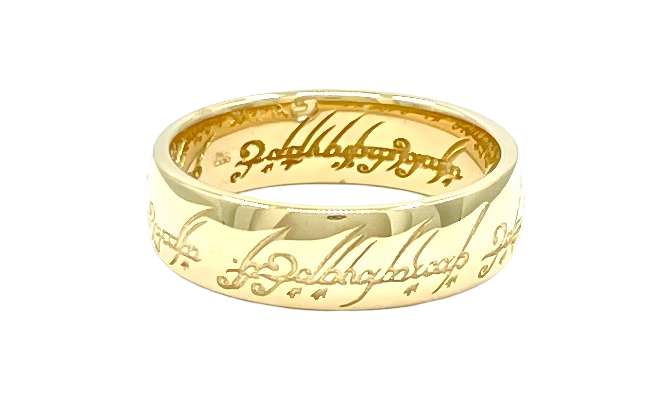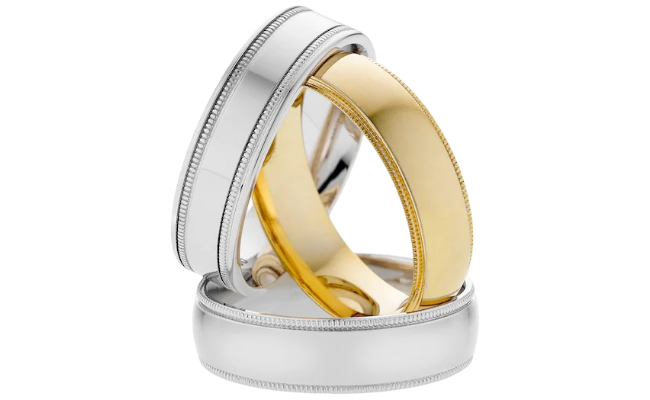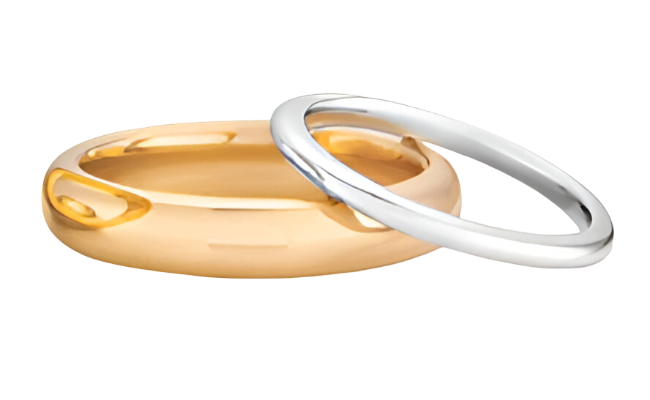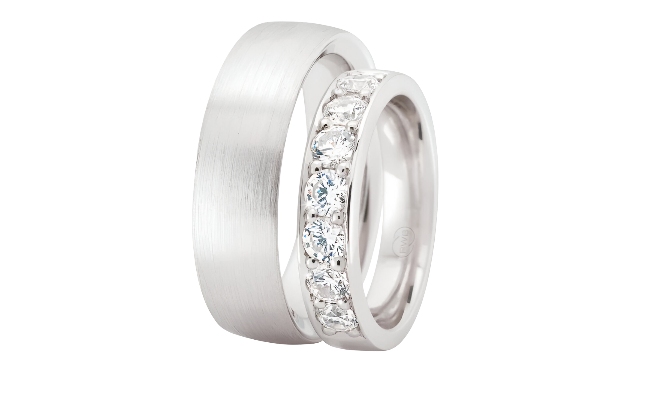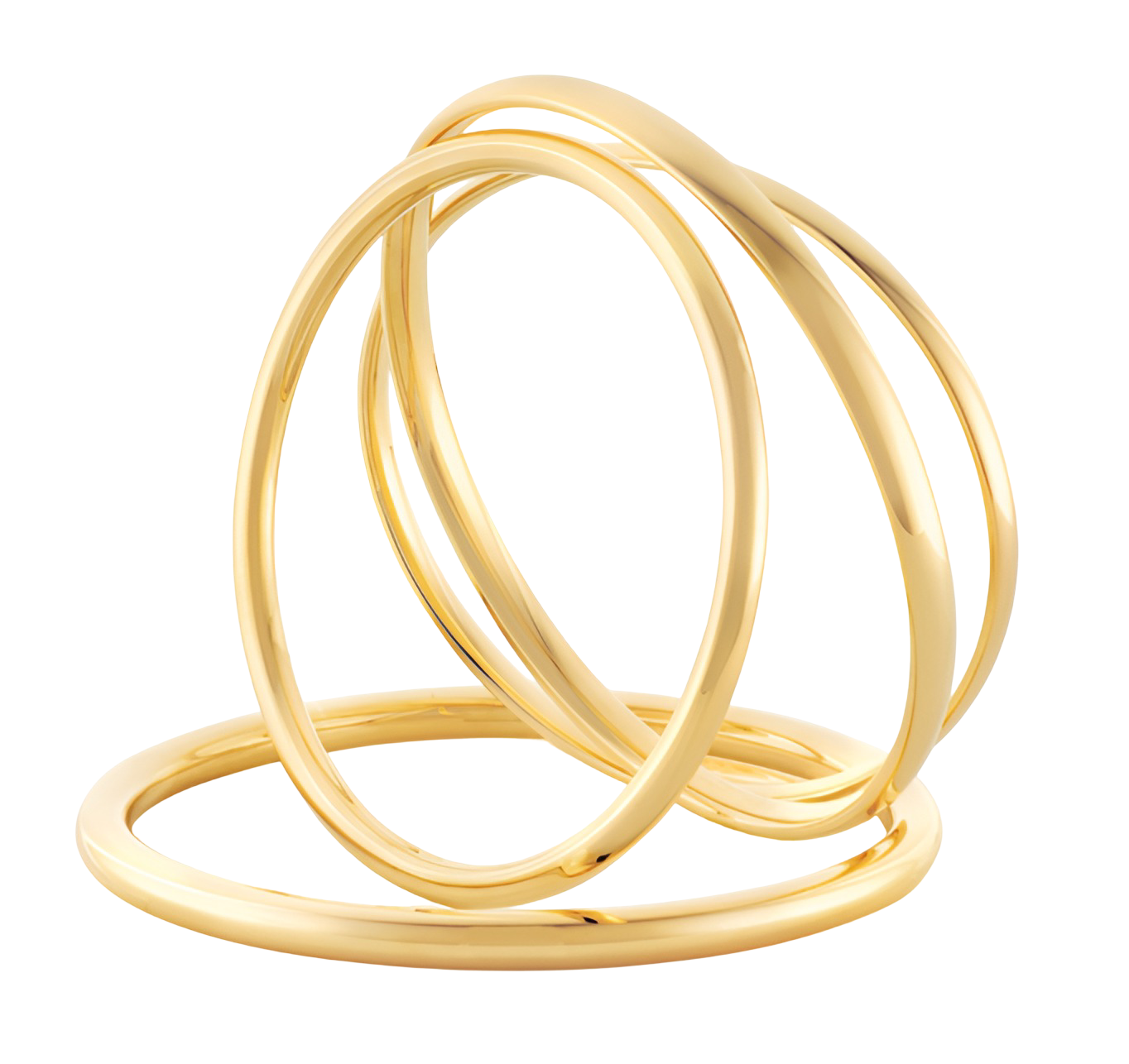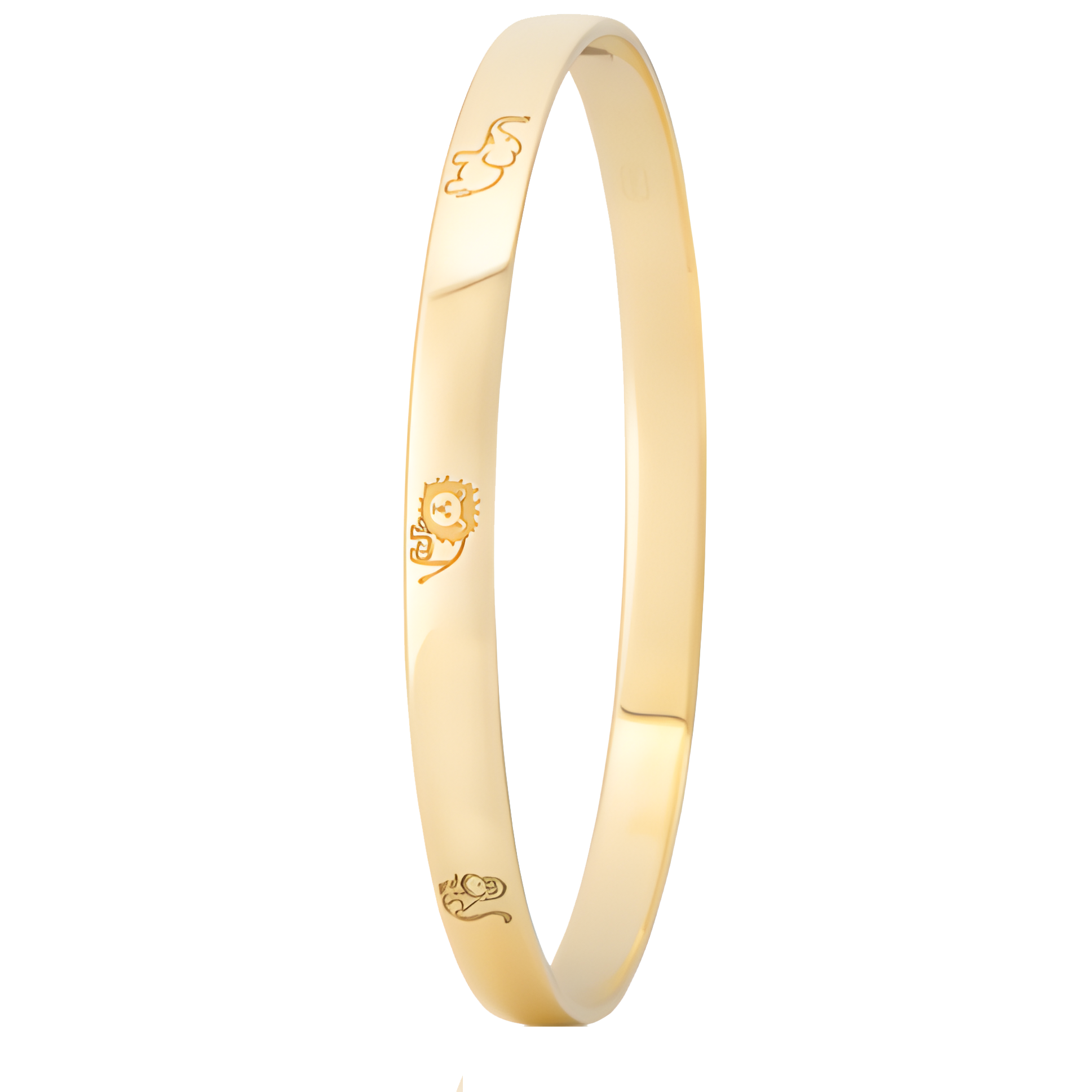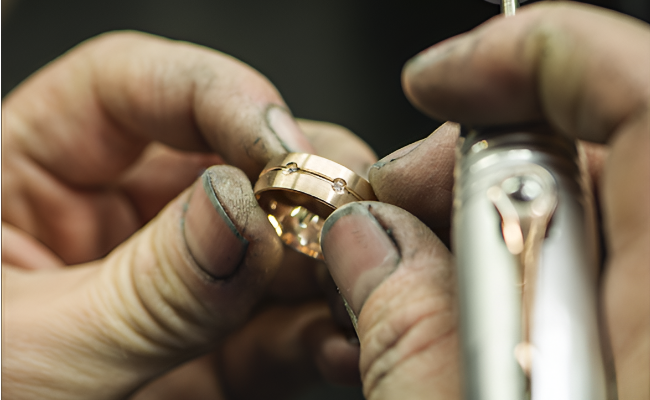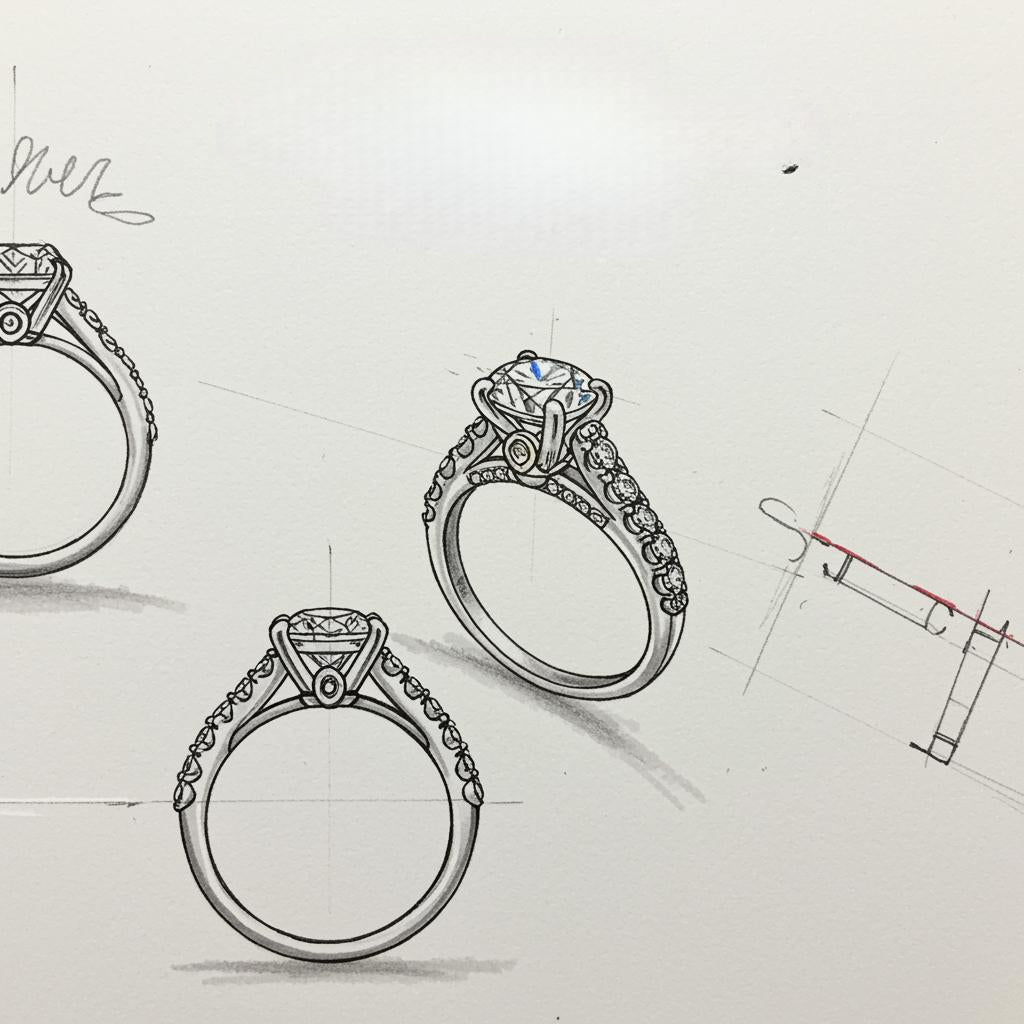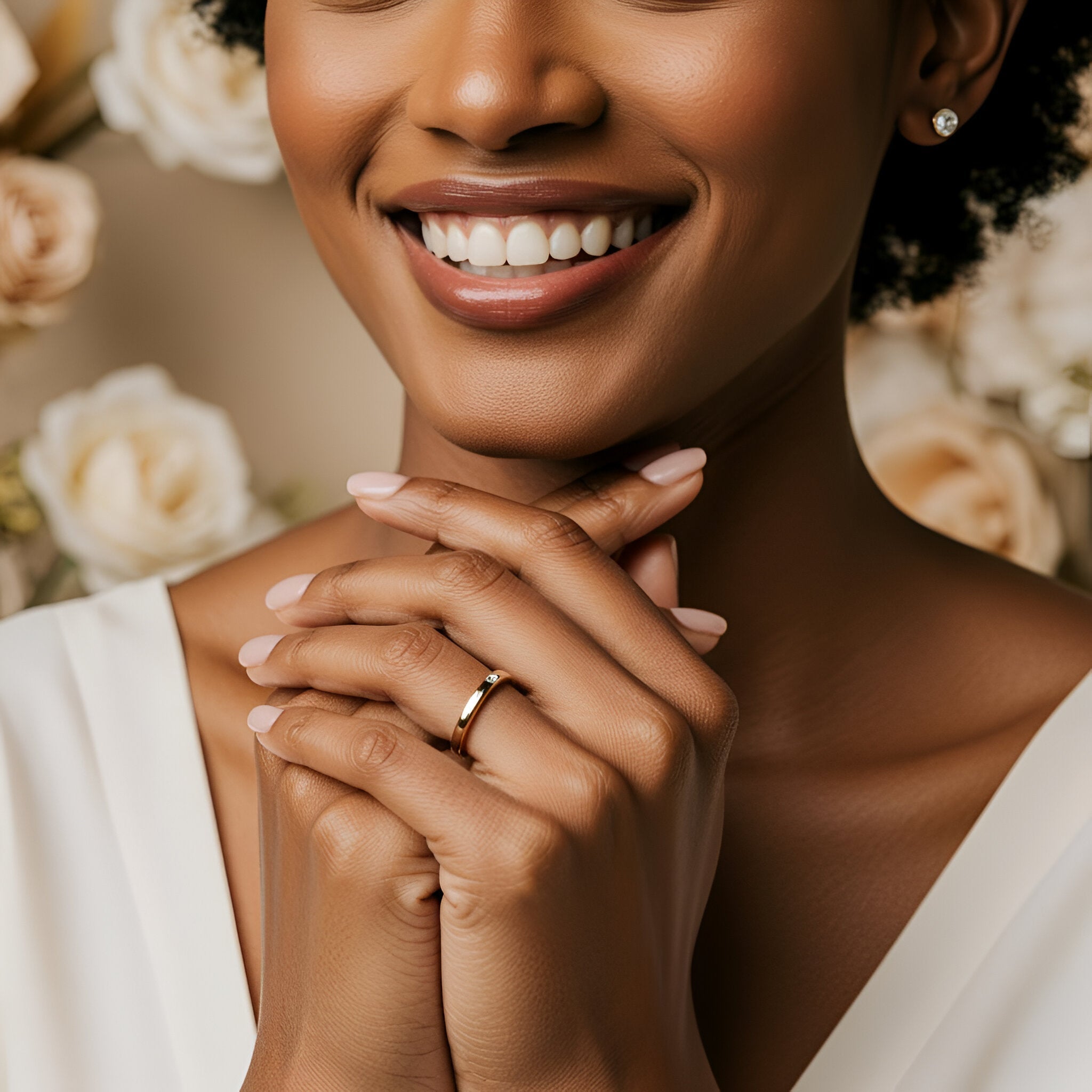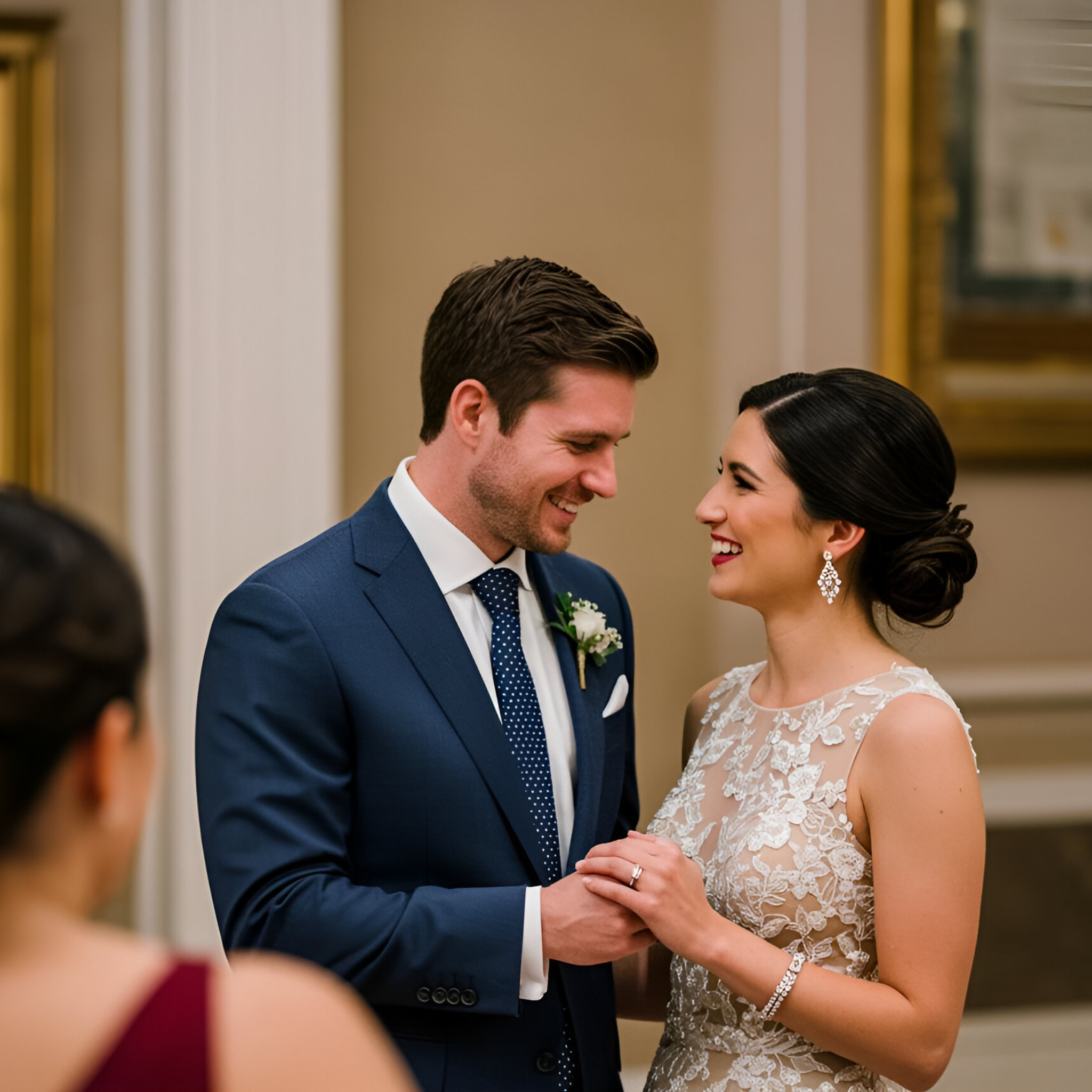
A Gentleman's Guide to Choosing the Perfect Wedding Ring
Choosing a wedding ring can be an intimidating process for men. The world of jewellery often feels like uncharted territory, and the seemingly endless options can leave you wondering where to begin. However, selecting the right wedding ring is crucial. After all, it will be a piece of jewellery you wear for a lifetime, so it should align with your lifestyle and personality, provide comfort, and fit within your budget.
While there's no magical formula for determining the perfect wedding ring, we can provide you with a comprehensive guide outlining the seven key factors to consider when selecting a men's wedding ring. These considerations will help you navigate the vast array of options and lead you to the ring that's just right for you.
Many men tend to jump straight into choosing the design of the ring. However, by first contemplating other essential elements, you can simplify your decision-making process and narrow down your choices to those that truly suit your needs and lifestyle.
Chapter 1: Choosing a Men's Wedding Ring Appropriate for Your Lifestyle
Your lifestyle plays a pivotal role in picking the right men's wedding ring. Each person's circumstances are unique, and what appeals to one may not resonate with another. Here are some key lifestyle-related questions to consider:
Can You Wear Your Wedding Ring While Working?
If your job involves physical labour, machinery, or environments where wearing a ring could be dangerous, consider the practicality of your choice. Some professions require rings that can be easily removed in emergencies.
Do You Work with Your Hands?
If your work or hobbies are physically demanding on your hands, whether you're a gardener or a tradesperson, you should assess whether wearing your ring during these activities is suitable.
Will You Wear Your Wedding Ring Daily?
Many men prefer to wear their wedding rings every day, but some professions or personal preferences may limit daily wear. For some, weekends and special occasions are the preferred times to wear the ring.
Will You Engage in Sports While Wearing Your Wedding Ring?
Consider whether you participate in activities such as rock climbing, football, basketball, or surfing that might expose your ring to rough conditions. If so, ensure your chosen ring can withstand these challenges.
Chapter 2: Crafting a Ring That Reflects Your Unique Personality
Your wedding ring is more than just a symbol; it's an extension of your personality. When selecting a ring, think about the following aspects:
Simplicity:
If you prefer a straightforward, no-frills style, classic gold wedding rings may be the perfect choice. However, within this category, there are numerous options, including various widths and shapes that can subtly alter the ring's appearance.
A Touch of Uniqueness:
If you want something distinctive but not overly flashy, consider rings with ribbed edges, inlay stripes, satin finishes, or two-tone combinations.
Bold and Daring:
If you enjoy standing out, consider custom-designed titanium or tungsten rings, or even unconventional shapes like puzzle rings.
Cultural or Ethnic Influence:
Your cultural background may guide your choice. For instance, if you have Irish heritage, you might be drawn to Claddagh or Celtic rings, while Italian heritage could inspire a design featuring diamonds.
Chapter 3: Prioritising Comfort with Your Wedding Ring
Comfort is essential when choosing a piece of jewellery you'll wear daily. To ensure your wedding ring is comfortable, consider these factors:
Ring Shape:
Look for rings with softly rounded edges rather than sharp angles that may dig into your skin. A gentle internal curve enhances comfort.
Ring Width:
The width of the ring should correspond with your finger size and personal preferences. Wider rings may require slightly larger finger sizes.
Chapter 4: Determining the Optimal Metal for Your Wedding Ring
Different metals offer various advantages and characteristics that may align with your preferences. Here's a closer look at the options:
Gold: Gold is a classic and timeless choice for jewellery, particularly for engagement rings and wedding bands. It comes in various karats, with 24-karat gold being the purest form. In contrast, 10- or 14-karat gold offers greater durability due to alloying with other metals, such as copper or silver. The colour of gold can also vary, with yellow gold being the traditional hue, white gold achieving a sleek and modern look through alloying with metals such as palladium or nickel and rhodium plating, and rose gold offering a romantic, vintage appeal due to its copper content. Each of these variations impacts not only the aesthetic of the metal but also its resistance to scratching and tarnishing, with higher karat options being more malleable.
Titanium: Titanium is gaining popularity in jewellery, especially for its remarkable properties. It is known for being incredibly strong yet lightweight, making it an excellent choice for everyday wear. Moreover, titanium is highly biocompatible, meaning it’s unlikely to cause allergic reactions, making it a preferred option for individuals with sensitive skin. Its natural grey hue can be finished in various ways, from polished to matte, and can even be anodised to create different colours, providing versatility while maintaining its durability. Additionally, titanium is resistant to corrosion, ensuring that your jewellery retains its shine over time.
Platinum: Platinum is a luxurious metal often chosen for its rarity and durability. Being denser than gold, platinum has a substantial feel and a natural sheen that doesn’t tarnish over time. Jewellery made from platinum is less prone to scratches but may develop a patina that adds a unique character with wear. It’s also hypoallergenic, making it suitable for those with sensitive skin. The weight of platinum makes it an excellent choice for securely holding gemstones in place, ensuring they stay sparkling and safe. While platinum tends to be more expensive than gold, its longevity and timeless elegance make it a worthwhile investment.
Tungsten: Tungsten is increasingly favoured for its unique qualities, particularly in men’s wedding bands. This metal is remarkably durable, being one of the hardest known materials, which translates to excellent scratch resistance. Tungsten carbide, the alloy commonly used in jewellery, maintains its lustre far longer than gold or silver, making it a wise choice for someone seeking low-maintenance jewellery. In terms of style, tungsten can be finished in various ways, from a high polish to a brushed look. It can be accented with inlays of wood, carbon fibre, or precious metals, offering a blend of traditional and contemporary designs at a competitive price point.
Silver: While silver is a beautiful and affordable option for jewellery, it may not be the best choice for everyday wear due to its softness. Sterling silver, composed of 92.5% silver and 7.5% of other metals (usually copper), is commonly used but is prone to scratching and tarnishing over time. This means that regular maintenance, such as polishing or cleaning, may be necessary to keep it looking its best. Additionally, silver can oxidise when exposed to air and moisture, resulting in discolouration. However, its bright and shiny appearance, combined with its affordability, makes silver a popular choice for fashion jewellery and occasional wear pieces. For those who prefer the look of silver but require greater durability, consider options such as rhodium-plated silver or sterling silver with added protective coatings.
Chapter 5: Examining the Role of Gemstones in Your Wedding Ring
Choosing Gemstones for Your Wedding Ring
Incorporating gemstones into your wedding ring is a deeply personal decision that often reflects your style and values. When considering the addition of gemstones, it's essential to assess not only your aesthetic preferences but also the symbolism that different stones may carry.
Aesthetics and Symbolism
Beyond visual appeal, think about the practical aspects, such as the durability and setting of the gemstones in relation to your lifestyle. For instance, if you lead an active lifestyle, you may want to choose harder stones, such as diamonds or sapphires, that can withstand daily wear and tear.
Practical Considerations
Additionally, the choice of setting can significantly affect how well the gemstone is protected. Take the time to explore various options, including colored gemstones that may add a unique touch to your ring, while also considering how these choices will reflect your personal story and values as a couple.
Conclusion
Ultimately, the right gemstone should resonate with your shared journey and complement your wedding band beautifully.


